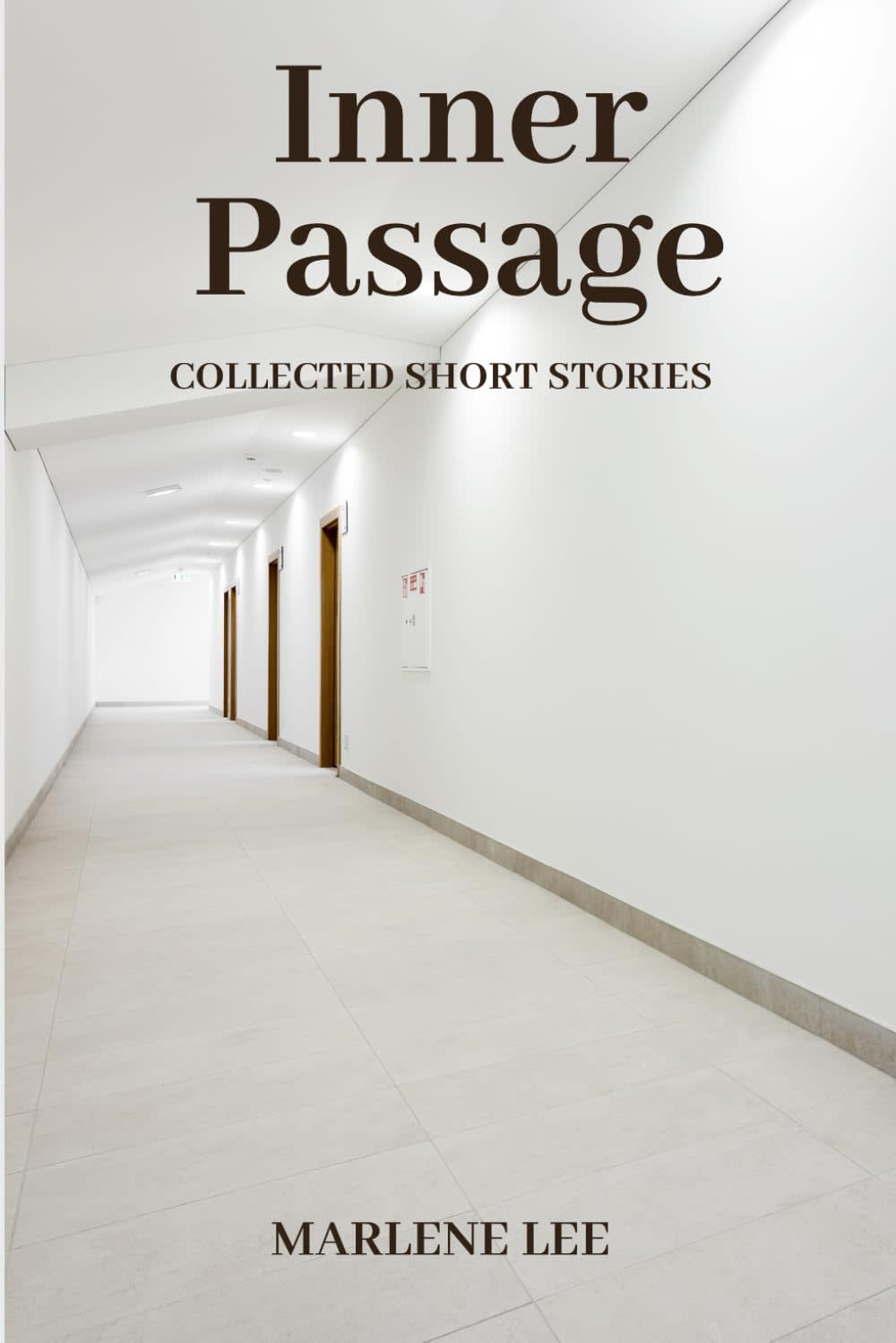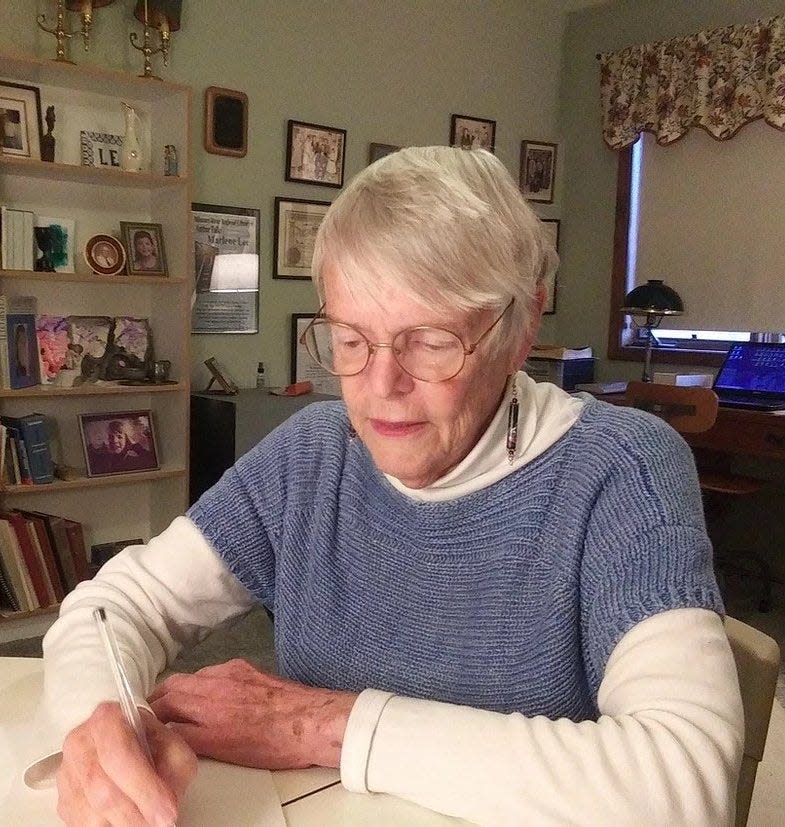Safe 'Passage': Marlene Lee's short stories welcome messy, well-loved characters

The possible push-pull between a character and their creator rises to the fore in the 2006 film "Stranger Than Fiction."
A novelist (played by Emma Thompson) sentences her protagonist to death on literary grounds, somehow unaware she is writing a real, living man (Will Ferrell). The two alternately approach and avoid "The End," relearning what it means to live with themselves on and off the page.
Characters across Marlene Lee's "Inner Passage" (Experiments in Fiction) have little need for fear — or the same fear, at least. Certainly, the Columbia author pushes plots along. In this set of stories, Lee's characters travel through new worlds, insular and strange; romance and repel; make quietly pivotal choices that reshape the weather around them.
But she cares less about what they do than who they are, who they're becoming. She writes these characters, sitting beside them as a benevolent witness, one who sees what and how they're seeing.
"It turns out there is a theme that runs through a writer’s concerns — and one of them for me is self-awareness, honesty," Lee said.
How Lee learned to see people
As a writer, Lee beautifully embodies the passenger's principle: Learn to secure your own oxygen mask before aiding another traveler. Growing into her own self-awareness, now she deftly handles her characters' sundry ways of seeing and overlooking.
"Perception is what I like. And the finer the perception, the more I'm satisfied," she said. "In fact, that's what I do with my whole life — just try to make my perceptions sharper, more accurate, more fair, better. That's how you become a better person: you perceive more accurately."
Lee devoted the first half of adulthood to teaching in high schools, vocational schools and colleges as well as embarking on what her website calls "a moveable feast of reporting" as a court stenographer. The work carried her to California, Oregon, Washington and New York.
Parachuting daily into true short stories, Lee observed self-contained dramas and their characters. Court reporting honed her vision, helped her to really see people.
What she saw carries over to writing in both subtle and defined ways. Rebecca, a woman inhabiting one of Lee's novels as well as several "Inner Passage" stories, is based on a rather ineffective, but sympathetic, attorney she encountered in court.
After a midlife moment splashed a cold cup of water across Lee's skin, she asked needed questions of identity and purpose. The unknowing compelled her to write, and all the discovery of those intervening years propels her fiction. "Inner Passage" follows five published novels, with more finished books seeking homes on shelves.

A cast of messy, well-loved characters
Characters both like and unlike Rebecca share a common struggle across these stories. Lee's sympathies lean toward people who fail to see themselves clearly, adults who chafe against too-small adolescent feelings, acting selfish or short-sighted as a result.
Lee invoked theory of mind, or the stage in which children begin to ascribe equal but different motivations and thought patterns to the people around them. Often, the people she writes keep tripping over or through this stage; though they take precedence at the end of Lee's pen, they fail to see how they might not be the main character in a given scene or story.
Rebecca inadvertently drives into the middle of a writers' conference, which gives Lee freedom to exercise a strain of dark, knowing humor about authors and how they think of themselves. A whipsmart schoolgirl in the early 1920s labors beneath grownup expectations, and the implications of decisions they hand down. The father of a special-needs child and the family's hired caregiver test the wind, trying to sense the shifts a little kindness might make.
In the book's final story — and one of Lee's favorites — she bends these concerns toward surrealism. Lee's personal history takes refreshing shape, writing a court reporter who not only inserts herself into legal matters, but actually puts herself on trial.
As characters sense their own desires, and sift those belonging to others, Lee exercises empathy, not judgment. She harbors deep-seated affection, focused on qualities they share rather than what separates them.
Lee's demeanor toward her characters might not perfectly resemble the last lines of her story "Olomides," but they almost form mirror images:
"I don't feel responsible for them," one character says of others, "but I love them. That's all."
Writing that heightens the senses
Anticipating publication, Lee sat for a Q&A with fellow local writer Barbara Leonhard. The conversation eventually turns to the music of writing.
"People read not only for meaning, but for the rhythm of words and sentences," Lee told Leonhard for MasticadoresUSA.
She observes, and revels in, the reflexive relationship between words and meaning; each guides the other, Lee said — and, together, they guide her.
"Sometimes I don’t want to write next. And sometimes I don’t know where the story is going. When I go back and revise for language just for language ... that will direct me. I rely on that very heavily," she said.
Style matters greatly, but style must serve meaning, she added. And the two get along famously within "Inner Passage." Lee writes the seconds and stages of an anxiety attack with authenticity; offers her reader lovely, rhythmic sentences; and any step towards cliche or convention becomes a subversive, substantive dodge.
"Richard's eyes narrowed," she writes in one story. "I've seen the words written in books, eyes narrowed, and it's very true. Eyes do narrow. They can turn into slits when it feels like dust or bits of gravel or something sharp is coming at them. My heart rate picked up when I looked into Richard's narrowed eyes."
Written toward sound, for the sake of sight, Lee's stories keep readers in touch with their every sense so we all might know each other for the better.
Lee will celebrate the launch of "Inner Passage" at 6:30 p.m. Nov. 14 at Skylark Bookshop. The book is available for pre-order, including through Skylark, and upon release will also be available at Yellow Dog Bookshop. Learn more about her at https://marlenelee.wordpress.com/.
Aarik Danielsen is the features and culture editor for the Tribune. Contact him at adanielsen@columbiatribune.com or by calling 573-815-1731. He's on Twitter/X @aarikdanielsen.
This article originally appeared on Columbia Daily Tribune: Columbia author Marlene Lee's short stories a study in perception

